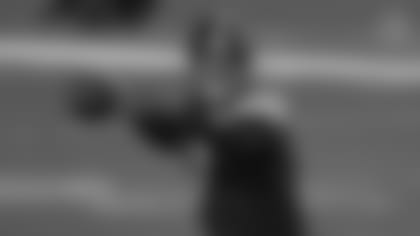**
Q. There was a little bit of franchise history made last Sunday in Cleveland, and the Steelers are one of those storied NFL franchises where that has meaning. William Gay is now No. 1 all-time in franchise history in sacks, but he didn't become a full-time starter until you got here in 2007. Did you know anything about James Harrison before that?**
A. I did, but I'm kind of a personnel junkie. I always study guys, and he was one of those guys who was interesting because he was a dominant special teams player, and usually with those guys who are dominant special teams players it's only a matter of time before they have an opportunity to be a dominant offensive or defensive player. And usually it's just based on opportunity or circumstance. I knew the quality of the guys – Joey Porter and others – that he played behind, and so I just thought it was a only matter of time for him. Now I didn't know he would go on to be a Defensive Player of the Year, or a perennial Pro Bowl guy, but I knew he had a chance to be a good player.
Q. What kind of player did you find him to be in 2007?
A. A hard worker, and I can't state that clearly enough. He was the poster boy for the offseason program that first year I was here. He was always in the building when I got here. He was always the guy who was the last man out of the building. Those were my first recollections of interacting with him from a professional standpoint.
Q. One of the times he was cut here, I believe, was because his position coach was afraid to deal with him. How did the coach-player relationship with you two go when you got here?
A. (Laughs) He's James. He's an interesting guy, but I've always been attracted to the interesting guys, the unique guys, the guys who give you an opportunity to brighten your day or surprise you in some way. I've always been able to see through some of the things that come out of his mouth and pay more attention to the things he does. Because the things he does are very pure. He's a great teammate, a hard worker, he's a humble guy. Sometimes he'll say things that lead you to believe otherwise, but that's just that guy Deebo.
Q. How long into it was it before you knew that James Harrison was a legitimate starter at outside linebacker?
A. We played a primetime football game at Heinz Field against the Baltimore Ravens in 2007, and he made every play on the field. He had 3.5 sacks. He blew up Ed Reed, because James was still on the punt team and Ed Reed was a punt returner, and the ball went about 20 yards in the air and we recovered that ball. He took over the game in a way that not a lot of players are capable of taking over a game. Forget positionally speaking. In the game of football with 22 men on the field at all times, there aren't many guys capable of taking a game over I've witnessed first-hand. And he took that football game over. If he had the ability to do that, then that's a snapshot in terms of what you're capable of being.
**
Q. You're standing on the sideline in Tampa at the end of the first half of Super Bowl XLIII. It's first-and-goal at the 1-yard line. Eighteen seconds left. You have a 10-7 lead. Do you remember the defensive call?**
A. I remember it was a zero-blitz. We're bringing everybody.
Q. Was James supposed to rush?
A. Yes, he was.
Q. I'm sure you've had this conversation with him, and so what did he see that had him drop into coverage?
A. In a zero-blitz, we're bringing one more than they have to account for from a protection standpoint. So he started to blitz, and once he saw that he was accounted for and was not the unblocked guy, he backed out of the blitz and tried to get a visual on the quarterback. He made an instinct decision, a snap knee-jerk reaction, an instant judgment decision, and who am I to question that decision? (Laughs)
Q. Take me through the next couple of minutes. What you saw. What you thought.
A. The quarterback's back was to us, and so standing on the sideline I was looking through the back of his helmet and looking in the direction he was looking, just trying to get a sightline of where he was going to throw the ball. James showed up in that sightline, and initially I was surprised because I expected him to be in the line of scrimmage. But right about the time I started to question it, boom, he had the ball in his hands. So then I'm watching the play, and I see we have people out in front of him, and I took a look up at the clock because I realize I'm trying to get a field goal out of this thing. They have three wideouts on the field, they have a running back on the field, they have people on the field who are capable of running this thing down. So initially, when he gets to about midfield, I'm thinking that, hey, maybe this guy has a chance to go. But I'm still halfway looking at him and halfway looking at the clock, because what I don't want is him getting tackled in the field of play with no time left and we get nothing out of it. By the time he got to the 30-yard line, you just kind of knew it was the point of no return, and then I just watched the rest of play like everybody else. And really appreciated it.
Q. Was that play, to you, a triumph of will?
A. It is so much a triumph of will in a guy working hard to pursue and realize his dreams, and in a James sort of a way he was very flat-line about it. He scores, he's laying flat on his back, and he's not getting up. I go out there, the trainers go out there because he's down. I get over to him, and I say, James. He looks up at me, and he says, "I'm tired, boss." (Laughs) In a James sort of way, that's all he had to say. He's flat on his back after just making one of the legendary plays in football history, and that's what he said. "I'm tired, boss."
Q. In your 10 years here, you coached some significant defensive players in franchise history – Aaron Smith, Troy Polamalu, James Farrior, Casey Hampton, Ike Taylor, Brett Keisel. Why does James Harrison belong in that group?
A. Not only for what he's capable of, but because of what he's willing to do. He always put those guys first, and that's why he belongs in that group. He was comfortable with his career and was moving into retirement and some of the men you mentioned called him and said, "Hey, man, we need you." And he came back. And many of the men who talked him into coming back have retired, and he's still here. That just speaks to who and what he is as a football player and a teammate.
**
Steelers head coach Mike Tomlin and C Maurkice Pouncey helped families this Thanksgiving through the Greater Pittsburgh Community Food Bank.
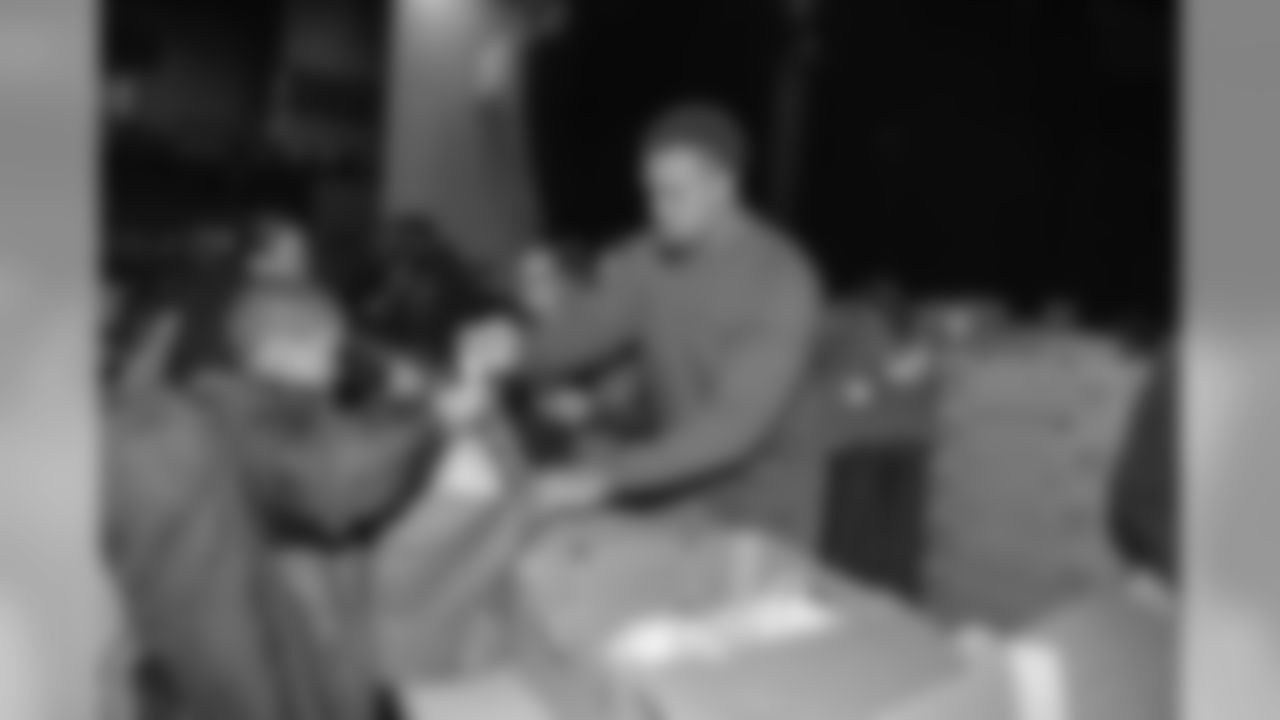
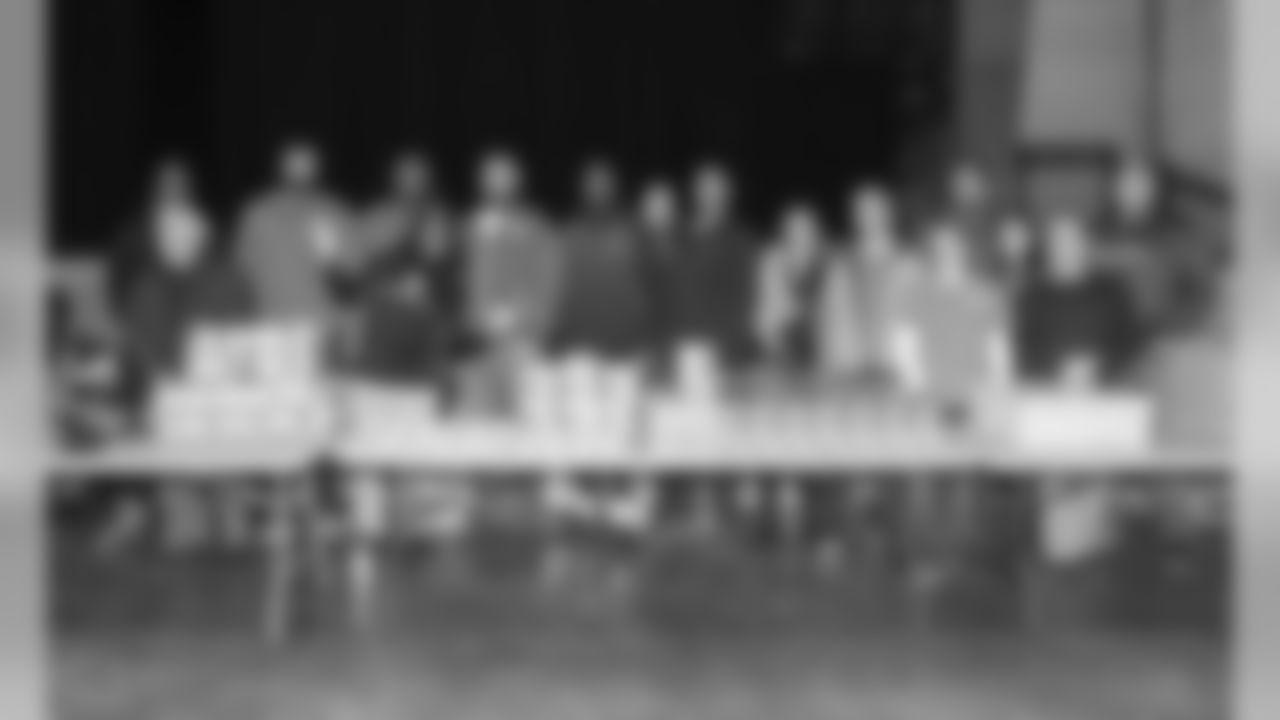


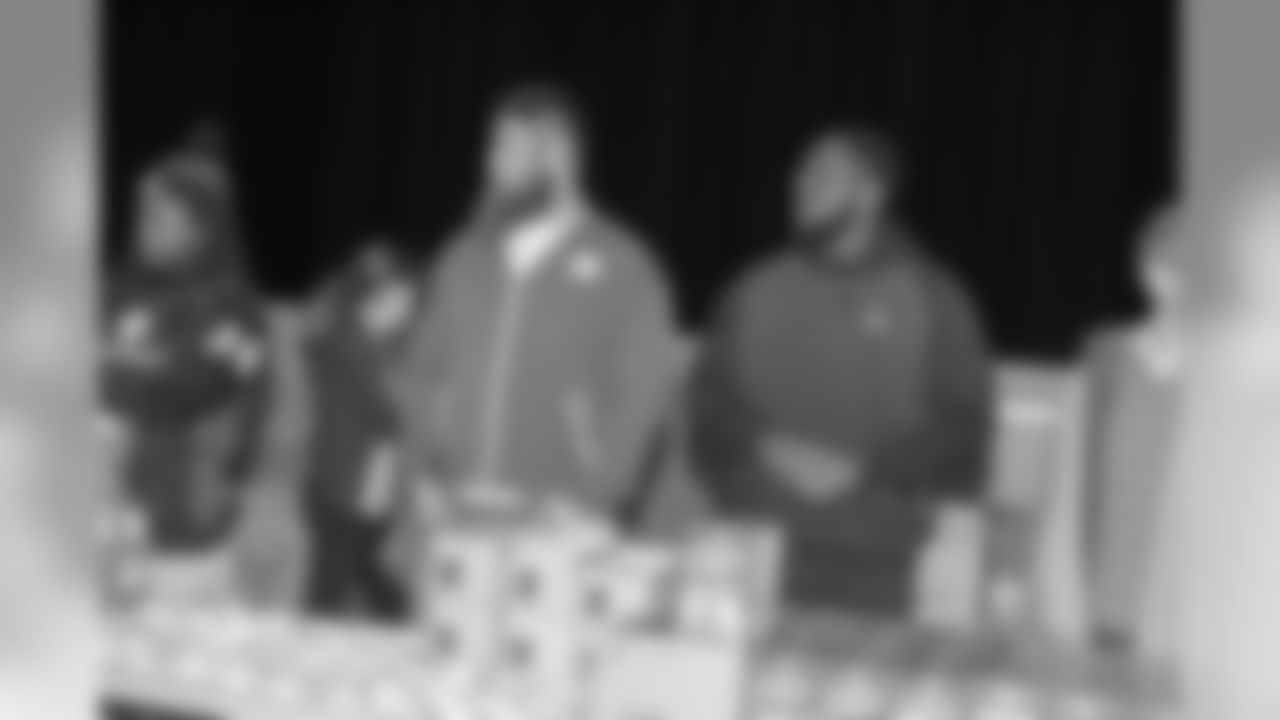

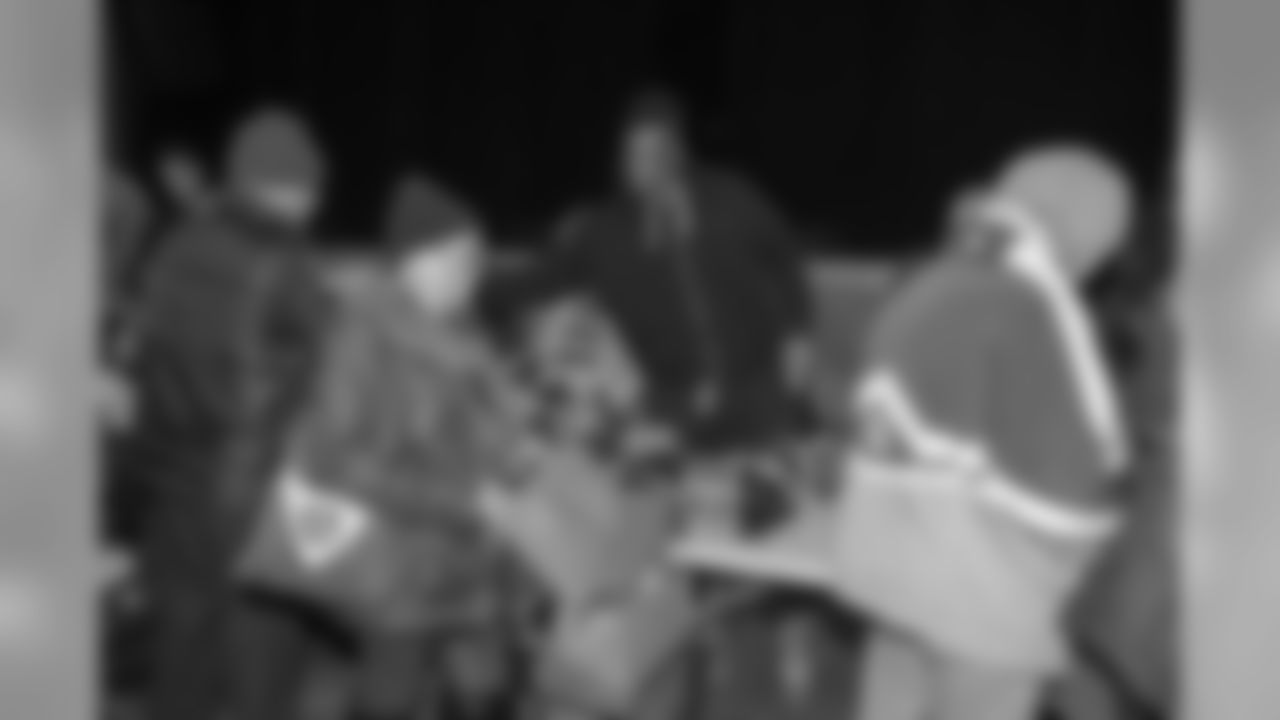


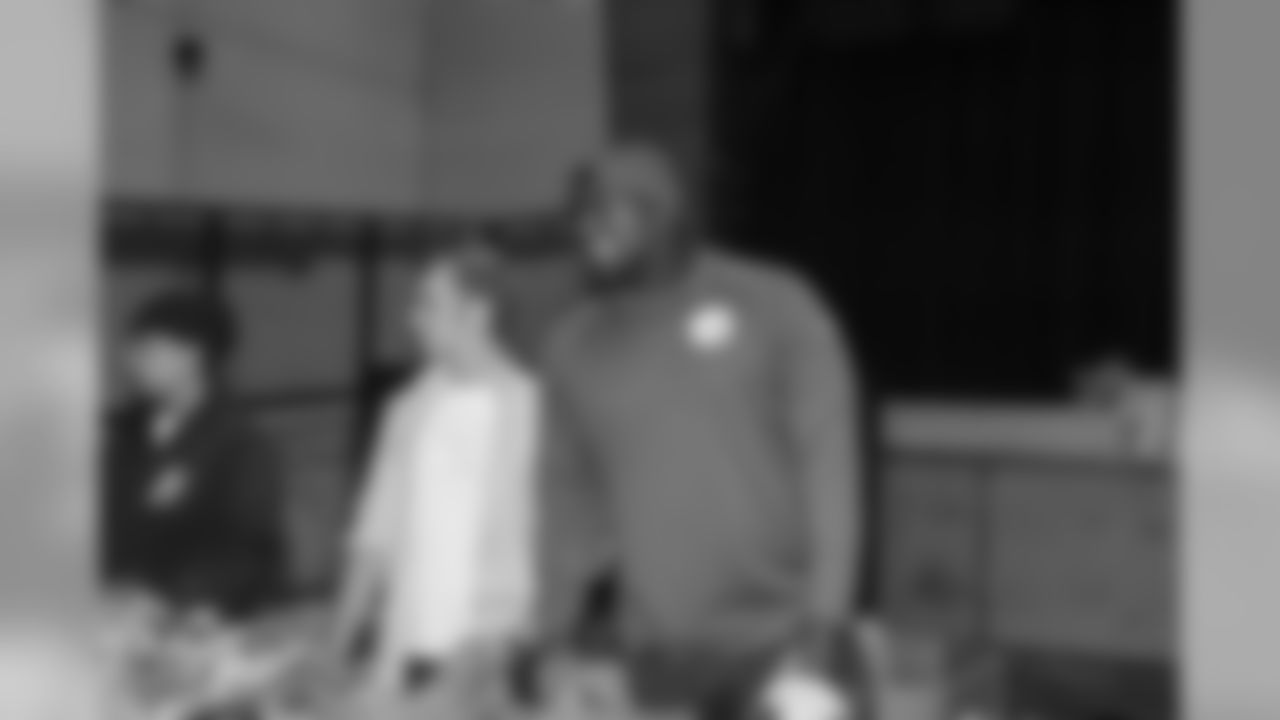


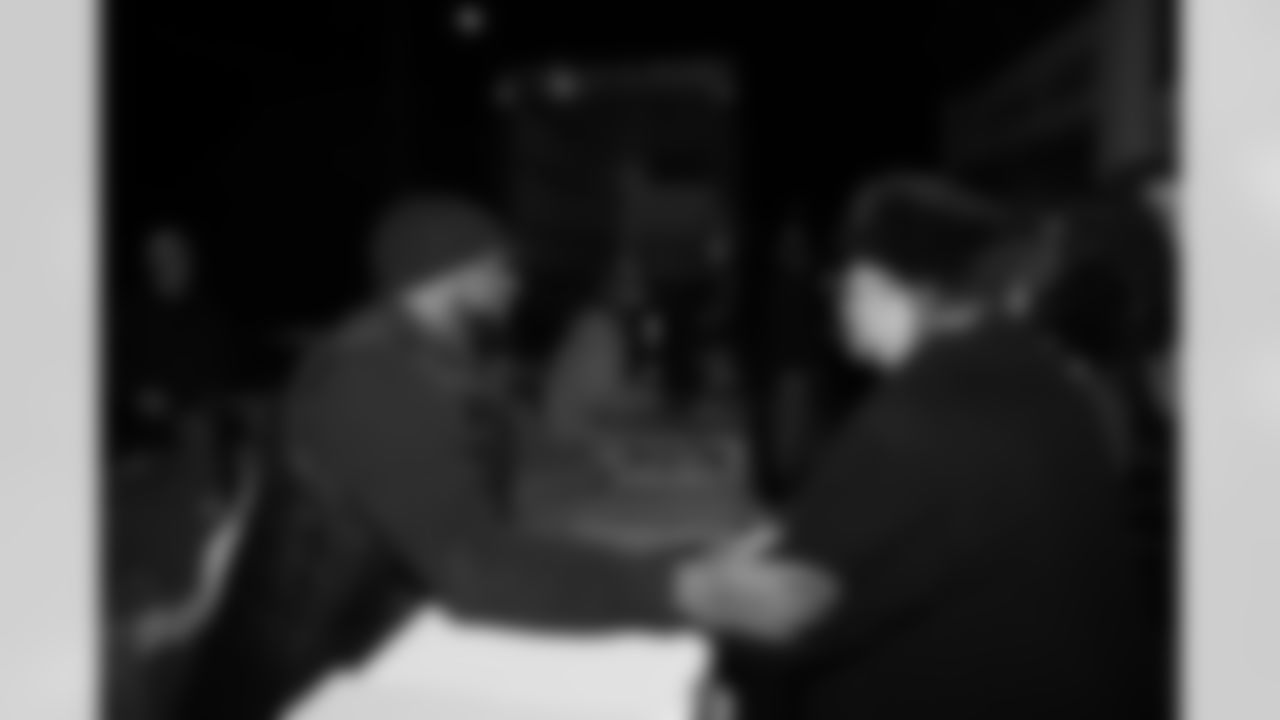
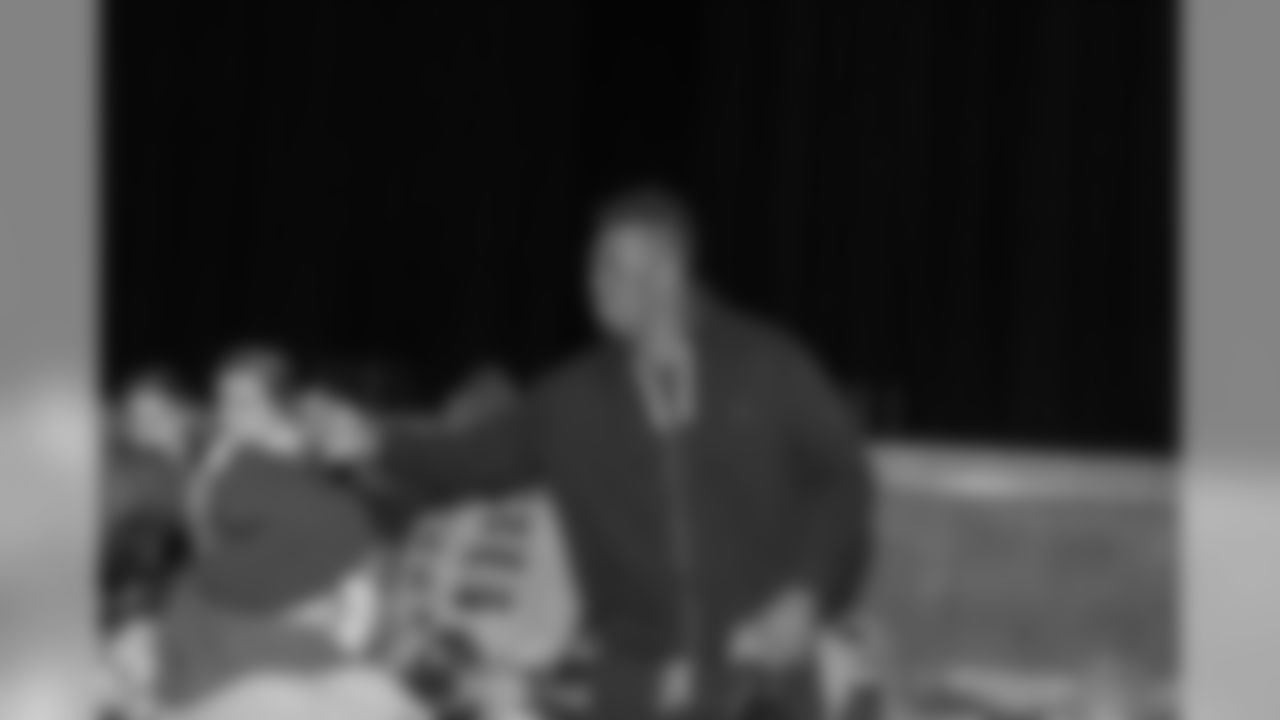
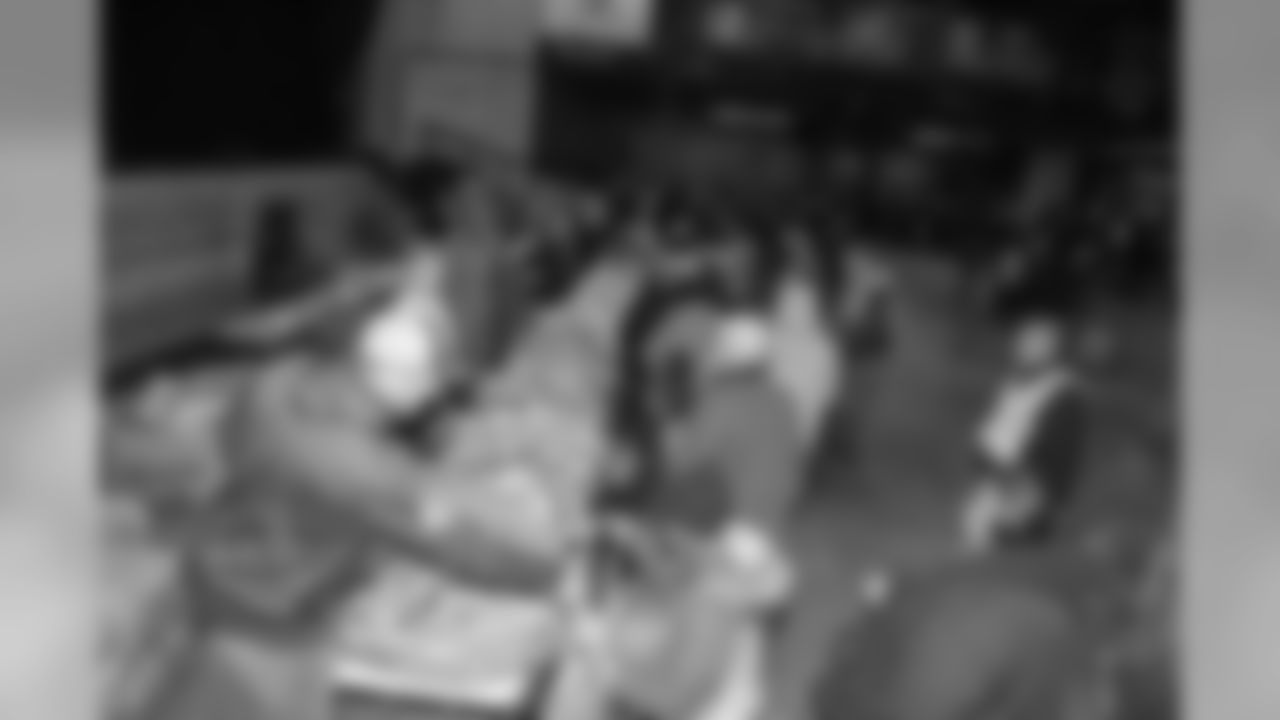
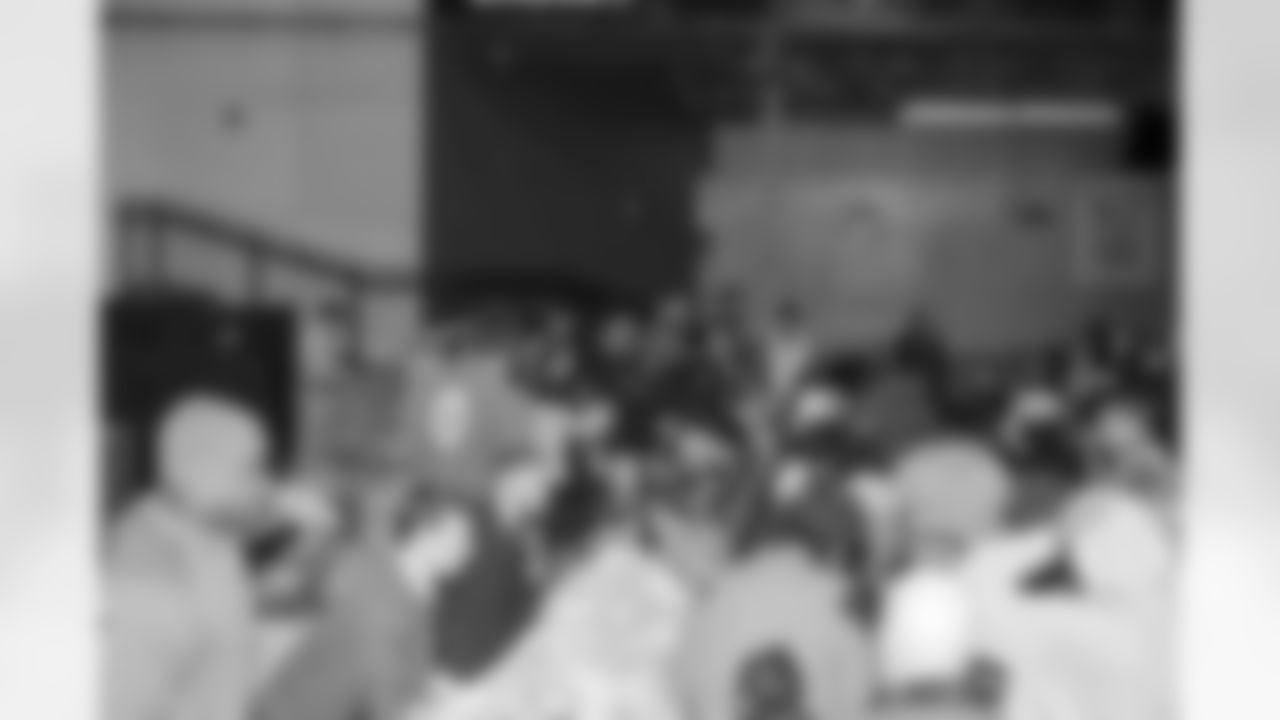
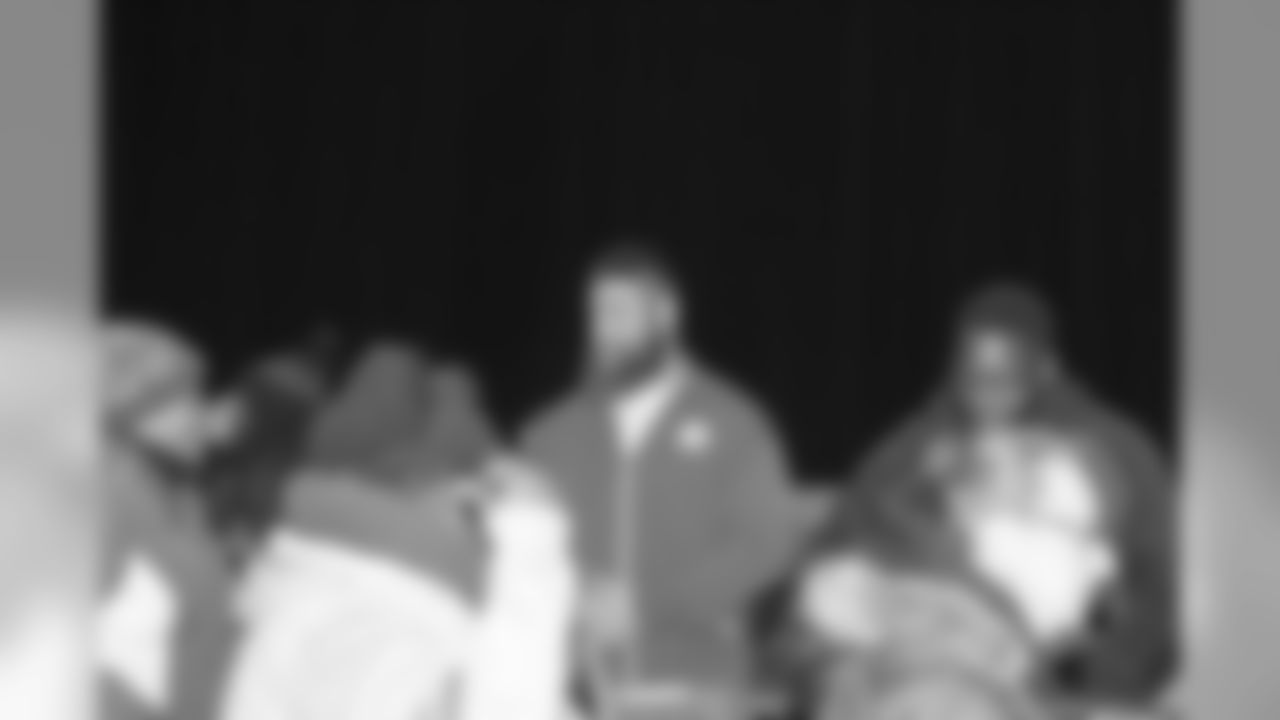
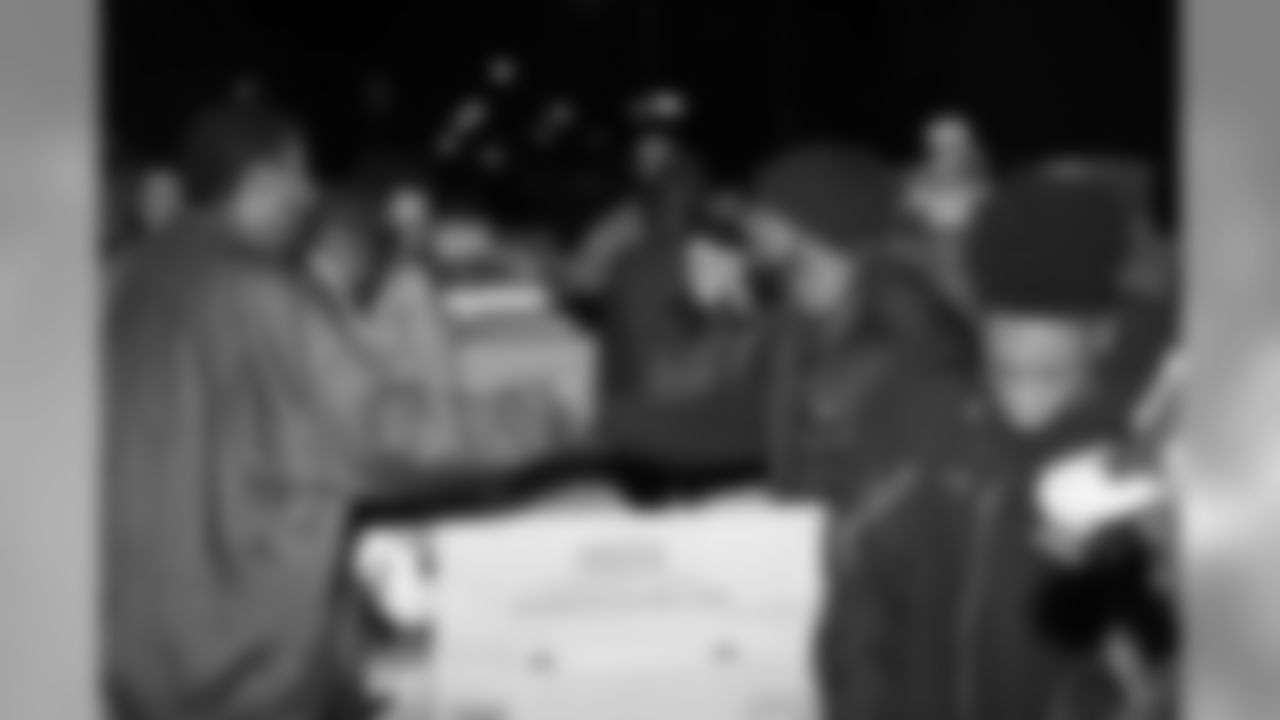

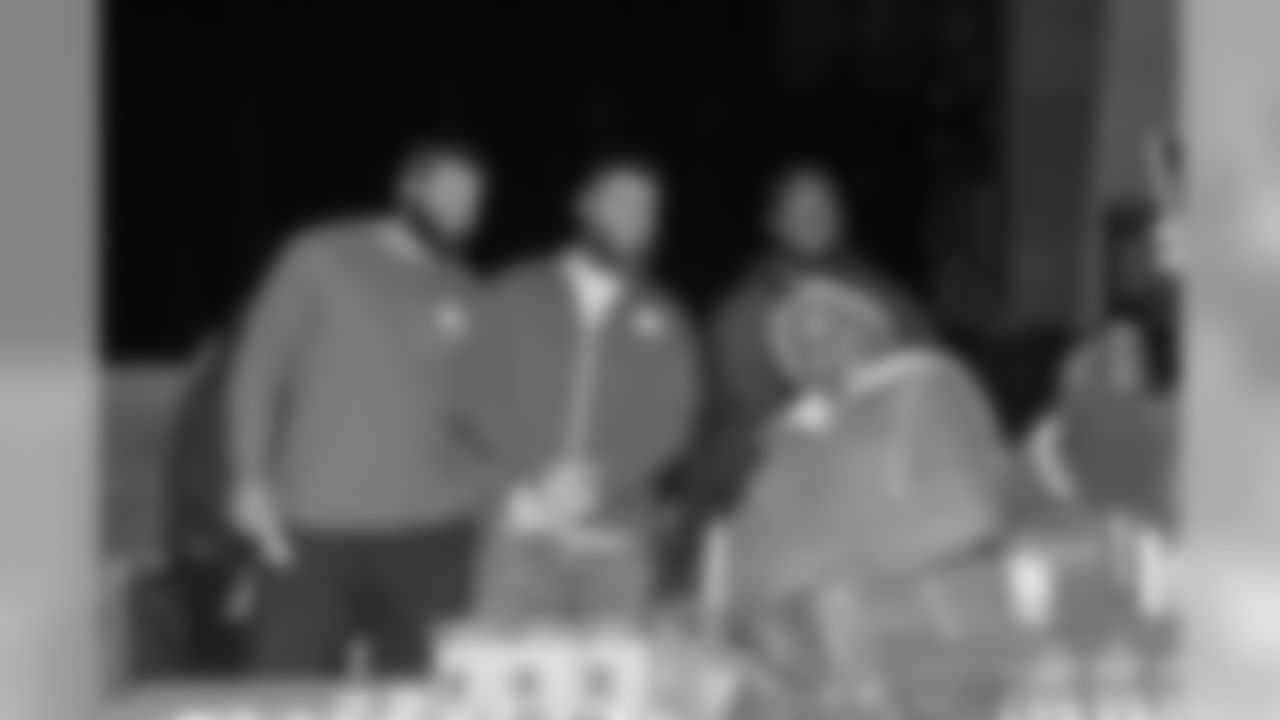
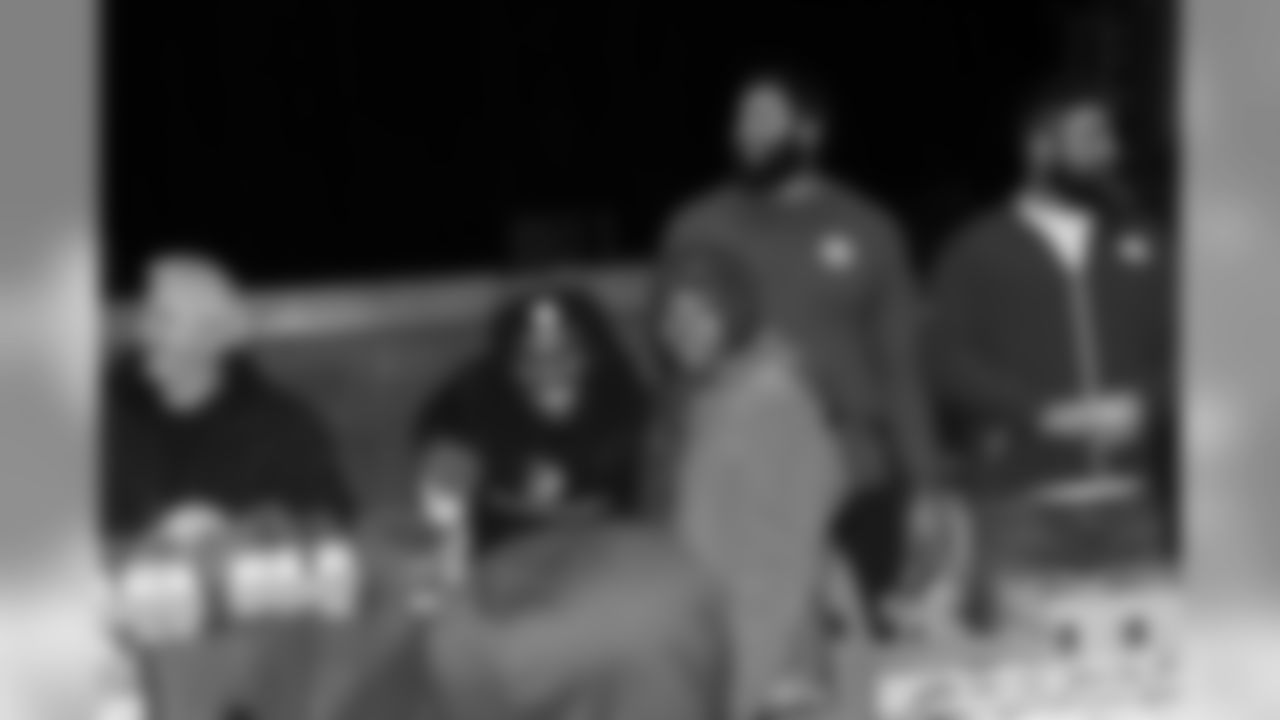


Q. During your news conference on Monday, you were talking about tonight's opponent, and you said, "If you are talking about the Colts, you start with Andrew Luck." Now it seems that Luck won't play because he was placed in the concussion protocol. How does that change your preparation?**
A. I think you're talking about the central focus of their offense shifting to Frank Gore, and so we're working to minimize his impact on the game. Not just in the running game, that's obvious, but just him as a security blanket as an outlet in the passing game. We have to minimize Frank Gore. We can't allow them to be in third-and-mediums, third-and-manageables. They'll have an increased commitment in trying to control the flow of the game through him and the running game, and we have to counteract that with quality play.
Q. What do you know about Scott Tolzien, the quarterback who would replace Luck?
A. I've looked at some profile tape on him. He makes good and quick decisions. He's got an acceptable arm. There's not a lot of flight time on his ball. He cuts the wind, if you will. So you won't have a lot of opportunity to make ground up, you better be close to guys in coverage. He's got pretty good mobility. His misdirection game is excellent. When you think about his skill-set, his skill-set physically speaking is very similar to Aaron Rodgers'. He can move the pocket. He can get out on the edge. He can get misdirection passes. He can create and extend when plays break down.
Q. In your experience as an NFL defensive coach, how does an upcoming opponent typically adjust to sudden-change at quarterback, such as this kind of situation?
A. It usually reflects the personality of the group, or the personality of the head coach. Knowing Chuck Pagano as I have for a long period of time, I would imagine it's going to become Frank Gore-centered, and the ball is going to be played through him. They're going to try to function in as normal a manner as possible in the other phases, and see how it goes from there.
Q. How would you evaluate the play of Artie Burns since he broke into the starting lineup?
A. I think he's improving dramatically in a short period of time, and that's a reasonable expectation. With repetition and exposure you gain experience. He's a bright young guy. He's a competitor. We're starting to see some of the things we saw from him from the (University of) Miami tape show up. He's catching the ball. He's always been a ball guy. He intercepted balls in high school, he intercepted balls in college, and now he's showing that capability in the NFL. I'm excited about his growth and development. I think it's reasonable to expect it to continue. The sky is the limit for that young man as long as he stays humble and hard-working, and he's been that way so far.
Q. What's the plan tonight for Bud Dupree – do you add gradually to his number of snaps, or is he full-go?
A. We're going to be on an incline in terms of the number of snaps that we expose him to for a period of time. You go through training camp and the preseason for a reason, because those processes are very necessary for team and individual development. He missed all of that, and you have to respect that. If you don't respect that, if we just jump into the pool, he has a chance to re-injure himself or hurt another part of his body because of a lack of preparedness. There's a difference between health and readiness. He's been cleared. He's healthy. He's in shape. But we have to continue to push him toward football conditioning, so that this experience can be a positive one for him and us.
Q. Where is Justin Gilbert in terms of being capable of contributing to the defense?
A. He's very much in our plans. You often cannot see it, because of the nature of position he's in. He's the No. 4 cornerback right now. The fourth corner is primarily a special-teamer until something happens to one of three guys, and then the fourth corner is playing about 45 snaps a game. I routinely have that conversation with him, and I'll tell Steelers Nation that. His progress has been very good. He's improving every day. He's getting the detail required to be a positive contributor to our efforts. If anything happens to one of three guys, and that's the interesting thing about the fourth corner position, he can become an every-down football player. And the same thing could occur with Justin. He's been working diligently on a daily basis, and when he gets an opportunity I'm sure he'll be excited to show the people what he's capable of.









